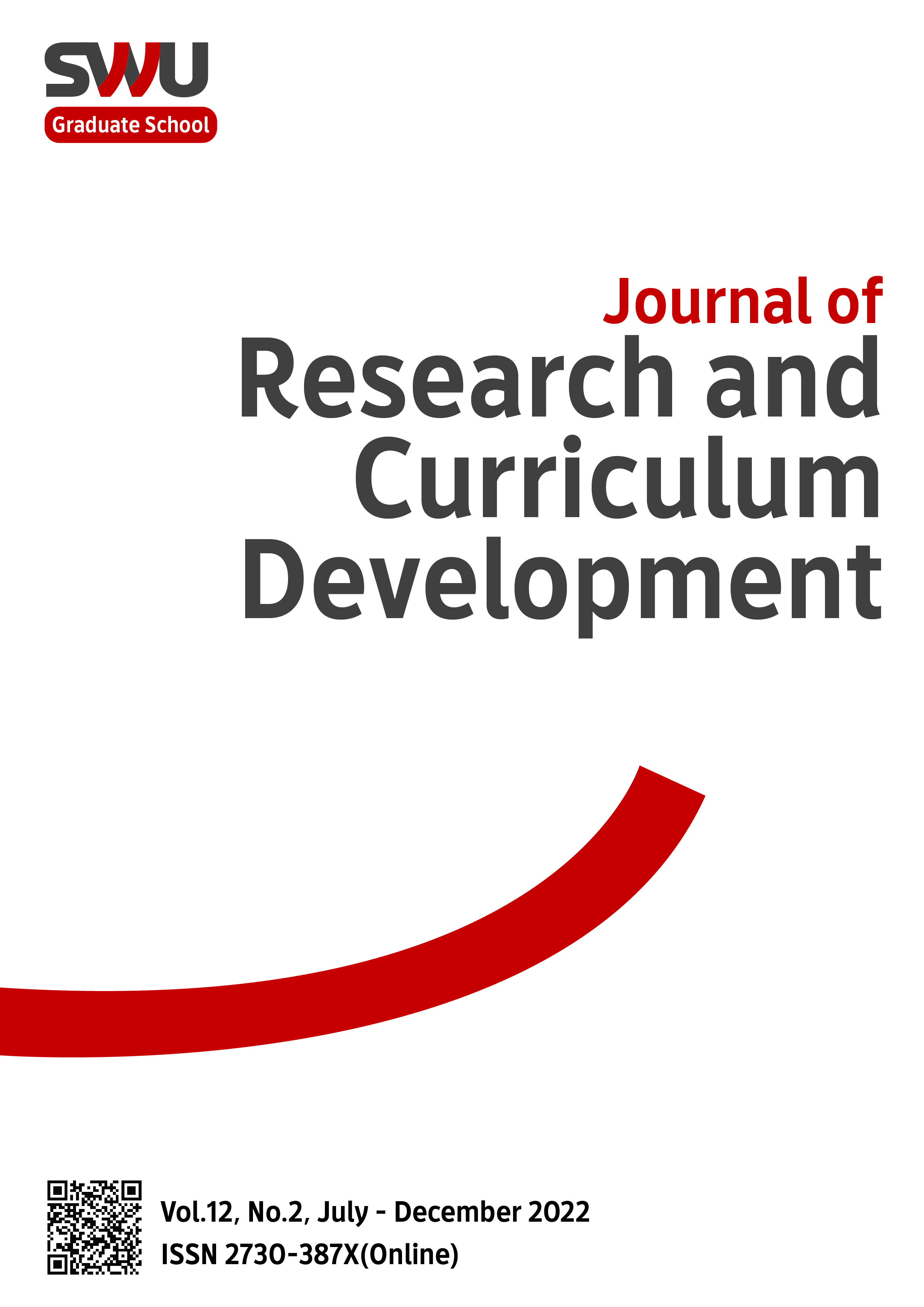The The Comparative Study of Community Learning Center Model: The Case Study of Oketo Town Kominkan, Japan and Songkhla Smart Center, Thailand
Keywords:
ศูนย์การเรียนรู้ชุมชน, การเรียนรู้ตลอดชีวิตAbstract
This qualitative research aims to compare the community learning centers which are prominently successful in preserving the traditional ways of life in the community between Oketo Town Kominkan, Japan and Songkhla Smart Center, Thailand. Document analysis recording form was used as tool to collect data. It was carried out by gathering fifty documents and research papers related to the concepts of lifelong learning promotion, community-based learning, and community learning center. Content analysis was used to analyze data considering the concepts, theories, and contents which were found as significant phenomena. The findings of this comparative study of these two community learning centers consist of the policy supporting the operation of learning resource in the community, the purpose of learning resource in the community, the participation supporting lifelong learning resource in the community, the core content of learning resource in the community, and learning activities related to the community. Furthermore, the results show the aspect of the core content of learning resource is crucially based on the context of the community. Even though the contexts of these two countries are different in terms of the economics societies and cultures, the community contexts must be considerably paid attention to.
References
ACCU. (2009). Kominkan: Community Learning Centers (CLC) of Japan. Retrieved from
ACTED. (2022). The Community Learning Centres manual. Retrieved from https://www.acted.org/wpcontent/uploads/2018/04/acted-clc-manual.pdf
Arai, Y., & Tokiwa-Fuse, M. (2013). Social Education and Kominkan. 4. Retrieved from https://www.hurights.or.jp/archives/asiapacific/section1/pdf/Social%20Education%20and%20Kominkan.pdf
Asmin, F. (2017). The Model of Community Learning Center Development: A Case Study of PKBM Assolahiyah in West Java
Province. Jurnal Ilmu Social Mamangan, 6(2), 1-11.
CEDEFOP. (2019). Implementing A Holistic Approach to Lifelong Learning: Community Lifelong Learning Centers as A Gateway
to Multidisciplinary Support Teams: Lifelong Learning Platform & Cedefop.
Chamnia, M. (2021). Guidelines for Buidling and Communicating The Culture of Learning Centers for Promoting CommunityBased Tourism. Journal of Kanchanaburi Rajabhat University, 10(2), 180-188.
Hossain, Z. (2016). Towards a Lifelong Learning Society Through Reading Pormotion: Opportunities and Challenges for Libraries
and Community Learning Centers in Vietnam. International Review of Education, 62, 205-219.
Intem, N., Phuwanatwichit, T., Sarobol, A., & Wannapaisan, C. (2021). The Local Wisdom Management Mohom for Stable Inherit
and Lifelong Learning. Journal of Education and Learning, 10(5), 38-50.
Iwasa, T. (2010). It is Time for Japanese Kominkan to Flower Again. Retrieved from https://www.dvv-international.de/en/adulteducation-and-development/editions/aed-742010/experiences-from-asia/it-is-time-for-japanese-kominkan-to-floweragain
Jantakot, P. (2015). Community Learning Centers: The Learning Source for Community Empowerment RSU Library Journal, 21(2),
-134.
Jantakot, P., & Tuamsuk, K. (2015). Factor Supporting The Success of Community Learning Centers in Thailand. TLA Research
Journal, 8(1), 42-53.
Leowarin, S. (2010). Community Learning Centers in Thailand Adult Education and Development. Retrieved from
Marshall University. (2022). What is Community-Based Learning? Retrieved from https://www.marshall.edu/cbl/what-iscommunity-based-learning
MEXT. (2006). Social Education in Japan. Retrieved from
Misra, P. K. (2011). Lifelong Learning For All In Asian Communities: ICT Based Initiatives. i-manager's Journal Of Educational
Technology, 8(2), 1-8.
Piseth, N. (2020). Community Learning Centers, challenges and way forward to become lifelong learning centers. Retrieved from
become_lifelong_learning_centers/references
Thongdee, V., Promgun, S., Sawadtha, S., Namsithan, S., Thuphume, P., & Ruangsan, N. (2022). The Development of Community
Leanring Center 'Bue Ban' in Driving The Smart City Policy in Khon Kaen, Thailand. Internationl Journal of Evaluation
and Research in Education (IJERE), 11(2), 802-809.
TK Park. (2019). Songkhla Smart Center. Retrieved from
https://www.tkpark.or.th/eng/TK_Provincial_detail/1568279347531/Songkhla-Smart-Center.
UNESCO. (2003). CLC Management Handbook. Bangkok: UNESCO.
UNESCO. (2008). Community Learning Centres Country Report from Asia. Thailand: UNESCO Asia and Pacific Regional Bureau
for Education.
UNESCO. (2011). Sustainability of Community Learning Centers: Community Ownership and Support. Bangkok: UNESCO.
UNESCO. (2016). Community-Based Lifelong Learning and Adult Education: Role of Community Learning Centers as Faciliators
of Lifelong Learning Bangkok: UNESCO.
Varavitpinit, S., Boonkoum, W., & Sungrugsa, N. (2018). The Model Development of Phetchburi City Follows Philosophy Trend
of The Sufficient Economy. Veridian E-Journal, Silpakorn University, 10(2), 1657-1674.
Wahyudin, U. (2015). The Quality of a 'Local Values Based' Functional Literacy Program: Its Contribution to the Improvement of
the Learner's Basic Competencies. International Education Studies, 8(2), 121-127.
Downloads
Published
How to Cite
Issue
Section
License

This work is licensed under a Creative Commons Attribution-NonCommercial-NoDerivatives 4.0 International License.





